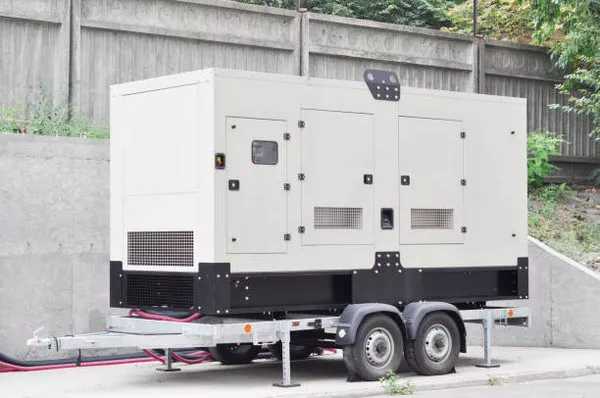Generators are invaluable tools for providing backup power during outages or for outdoor activities. However, the question of whether you can leave a generator running all night requires careful consideration of safety, performance, and maintenance. This article will delve into the factors to consider, the safety measures to take, and the implications of running a generator overnight.
Understanding Generators
1. Types of Generators
Generators come in various types, including portable, standby, and inverter generators. Each type has different capabilities and uses, influencing whether they are suitable for overnight operation.
Portable Generators: These are versatile and can be used for camping, outdoor events, or as backup power. They are often gasoline-powered.
Standby Generators: Installed permanently, these generators automatically activate during power outages and are usually powered by natural gas or propane.
Inverter Generators: These provide clean power suitable for sensitive electronics and are typically quieter, making them a good option for overnight use.
2. Common Uses of Generators
People use generators for various purposes, including:
Providing power during outages.
Supporting appliances and essential devices.
Powering tools for construction or landscaping.
Facilitating outdoor events and camping trips.
Factors to Consider Before Running a Generator Overnight
1. Safety Concerns
Carbon Monoxide (CO) Risks
One of the primary concerns with running a generator overnight is carbon monoxide (CO) poisoning. Generators emit CO, which is a colorless, odorless gas that can be deadly. It’s crucial to ensure that the generator is placed in a well-ventilated area, far from any windows or doors.
Fire Hazards
Generators can pose fire risks if not used properly. Overloading a generator with too many devices can cause overheating, leading to fires. Ensure you follow the manufacturer’s guidelines regarding the maximum load capacity.
2. Noise Levels
Generators can be noisy, especially if used for extended periods. The noise can be disruptive, particularly in residential areas. Consider using a quieter inverter generator if noise is a concern.
3. Fuel Considerations
Running a generator overnight means you need to ensure there’s enough fuel. Running out of fuel can not only leave you without power but also pose issues for restarting the unit. Always have a supply of fuel on hand and check the levels before long-term use.
4. Surge Protection
Using devices that require high wattage can cause surges that may damage your generator or appliances. Ensure you use surge protectors or circuits designed for generator use to mitigate this risk.
Best Practices for Running a Generator Overnight
1. Proper Placement
Place your generator at least 20 feet away from your home, windows, and doors to minimize the risk of CO entering your living space. Ensure it’s in an open area to facilitate proper airflow.
2. Use a Carbon Monoxide Detector
Installing a battery-operated CO detector in your home can provide an additional layer of safety. This device will alert you if CO levels become dangerous.
3. Monitor Fuel Levels
Check fuel levels regularly and refuel as necessary. It’s advisable to use fuel stabilizers to prolong fuel life if you plan to store it for extended periods.
4. Limit the Load
Only connect essential appliances to your generator, avoiding overload. This helps reduce the risk of overheating and extends the life of your generator.
5. Regular Maintenance
Regular maintenance is crucial for ensuring your generator runs safely and efficiently. Change the oil, replace the air filter, and inspect the spark plug as recommended by the manufacturer.
6. Consider an Automatic Transfer Switch
If using a standby generator, consider installing an automatic transfer switch (ATS). This system detects power outages and automatically starts the generator, ensuring a seamless transition of power without needing manual intervention.
Alternatives to Running a Generator Overnight
1. Battery Backup Systems
Battery backup systems store energy and can power essential devices without the noise and emissions associated with gas-powered generators. They are particularly useful for overnight use and can be charged during the day from solar panels or the grid.
2. Inverter Generators
Inverter generators are quieter and more efficient, making them suitable for overnight use. They provide stable power for sensitive electronics and are generally safer for prolonged operation.
3. Solar Generators
Solar generators harness energy from the sun and store it for later use. They produce no emissions, operate silently, and are an eco-friendly alternative to traditional generators.
Conclusion
While it is possible to leave your generator running all night, safety should always be your top priority. Understanding the risks associated with carbon monoxide, fire hazards, and proper fuel management is essential. By following best practices, such as ensuring proper placement, monitoring fuel levels, and using a CO detector, you can mitigate risks and enjoy the benefits of uninterrupted power.
Ultimately, consider alternatives like battery backup systems or inverter generators for safer overnight use. Whether you choose to run your generator overnight or seek alternatives, being informed and prepared will ensure you can enjoy reliable power while maintaining safety and peace of mind.
You Might Be Interested In

